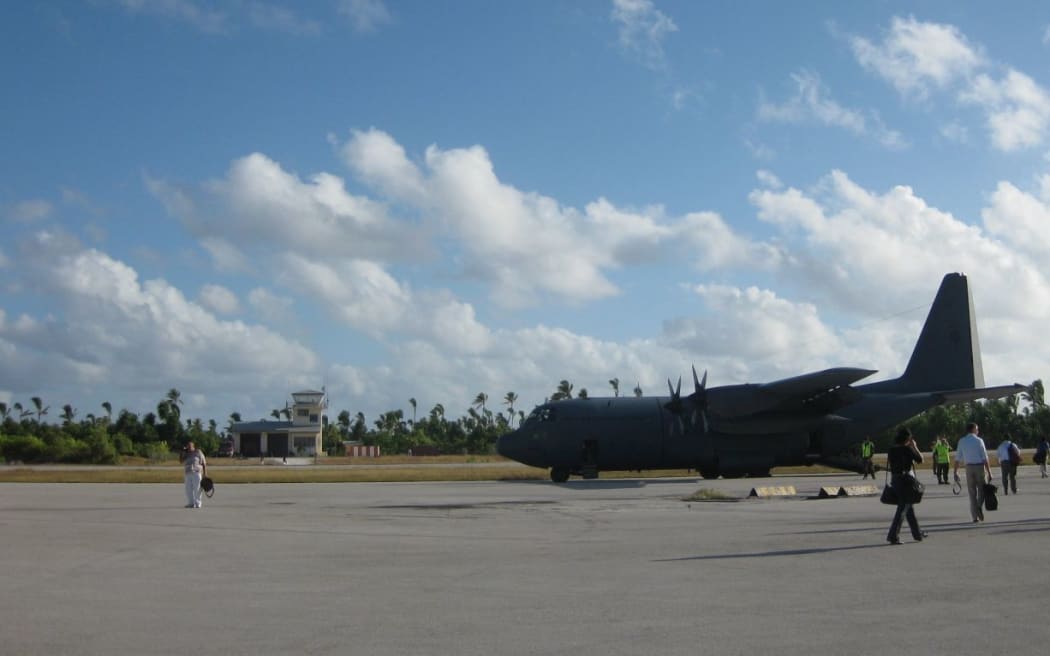Lawyers representing Kiribati are suing an American company known only as CAMMS for failing to deliver a Twin Otter aircraft for which the island nation has reportedly paid more than 4 million US dollars.
The new Chief Executive of Air Kiribati, Tarataake Teannaki says the aircraft is desperately needed as they are struggling to service their domestic routes.

Kiribati airport. Photo: RNZI
"What I have gathered so far is that the company have their own reason for not, for holding back the aircraft. From our side we thought that everything has been cleared so their shouldn't be any poblems. And that is being addressed by our legal people in the US."
Tarataake Teannaki says the Phoenix, Line and Gilbert island groups are now being serviced by a Twin Otter earlier purchased from CAMMS and a Chines Y-12 aircraft.
In a statement, CAMMS says its taking legal action against Air Kiribati, and the Kiribati government, for failing to deliver a Air Kiribati owned CASA 212-200 msn 356 in air worthy condition to it.
The American Company was taking the CASA 212-200 on partial trade for its Twin Otter it sold to Air Kiribati.
CAAMS says Air Kiribati had been operating the CASA aircraft throughout the Kiribati Islands, but without performing the required preventative maintenance, putting the lives of passengers at risk.
It says the Kiribati government had provided a Kiribati Export C of A Certificate to the USA FAA, indicating the CASA 212-200 aircraft was airworthy to FAA standards.
But it says during the inspection of the CASA 212-200 the FAA Engineers noticed severe corrosion in the CASA 212-200 airframe and tail section of the aircraft.
The company has filed a multi-million US Dollar lawsuit for Fraud & Misrepresentation against Air Kiribati, and the Kiribati government.
The company says the USA FAA has also put Kiribati onto the Black List of 22 countries for failure to maintain the CASA aircraft and operating the aircraft non-airworthy for public transportation.
CAAMS is also filing a formal complaint with the FAA and the U.S. Department of Transportation.

